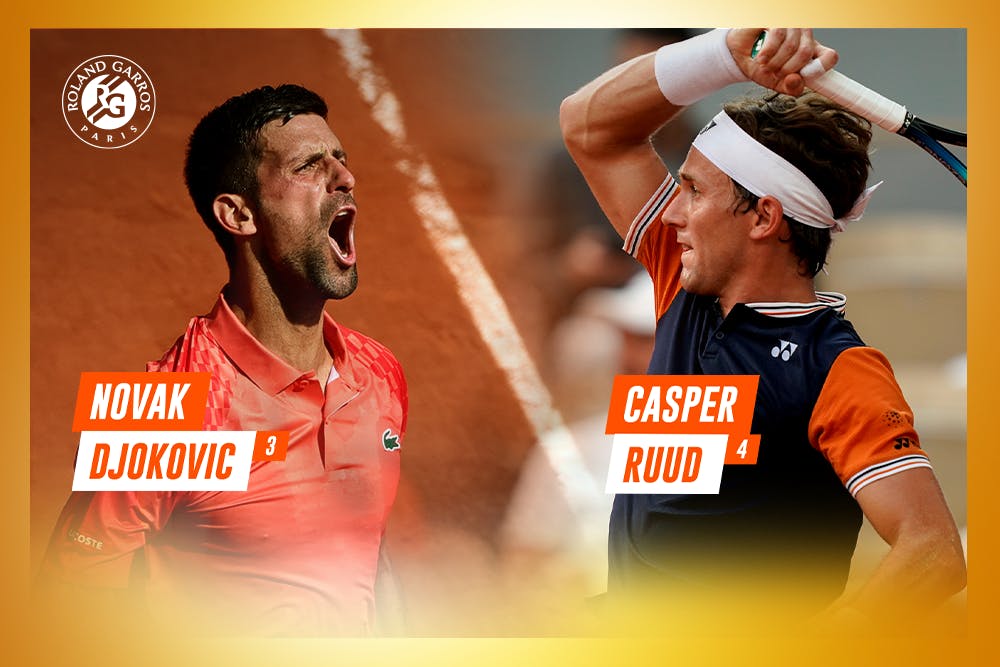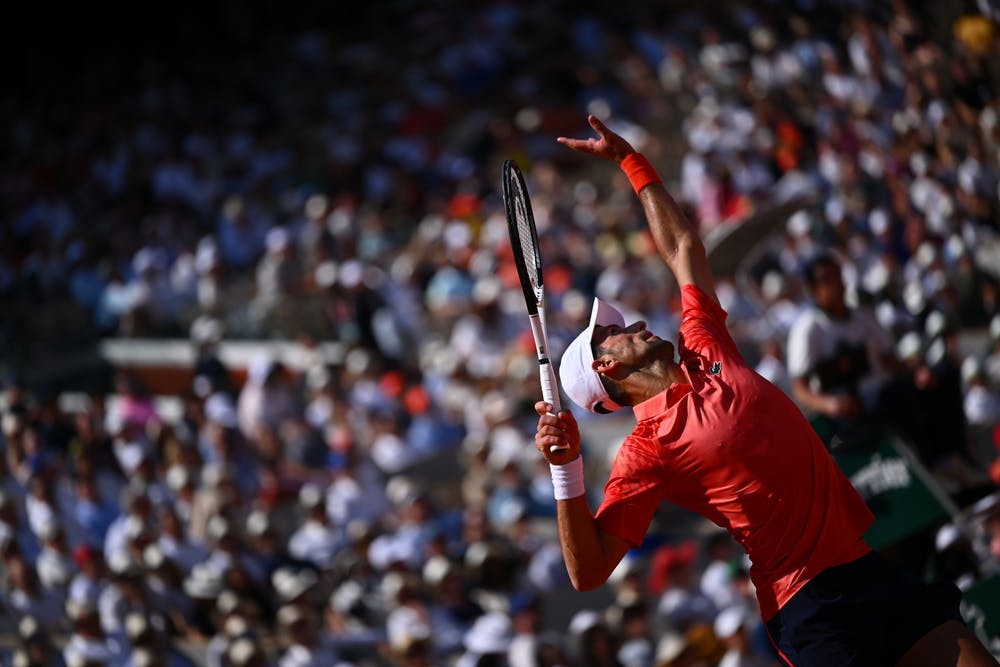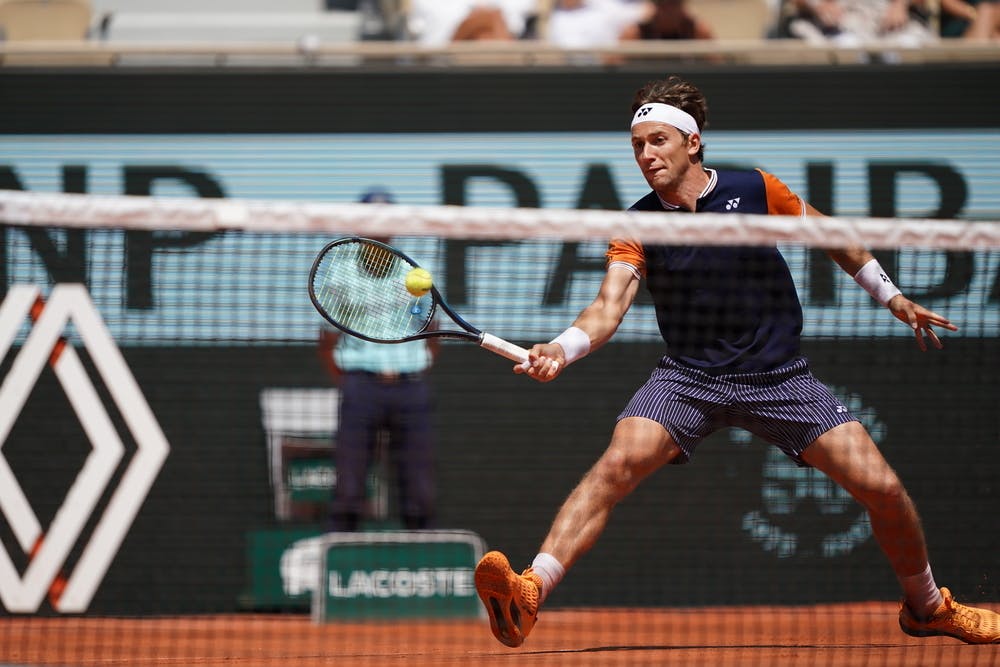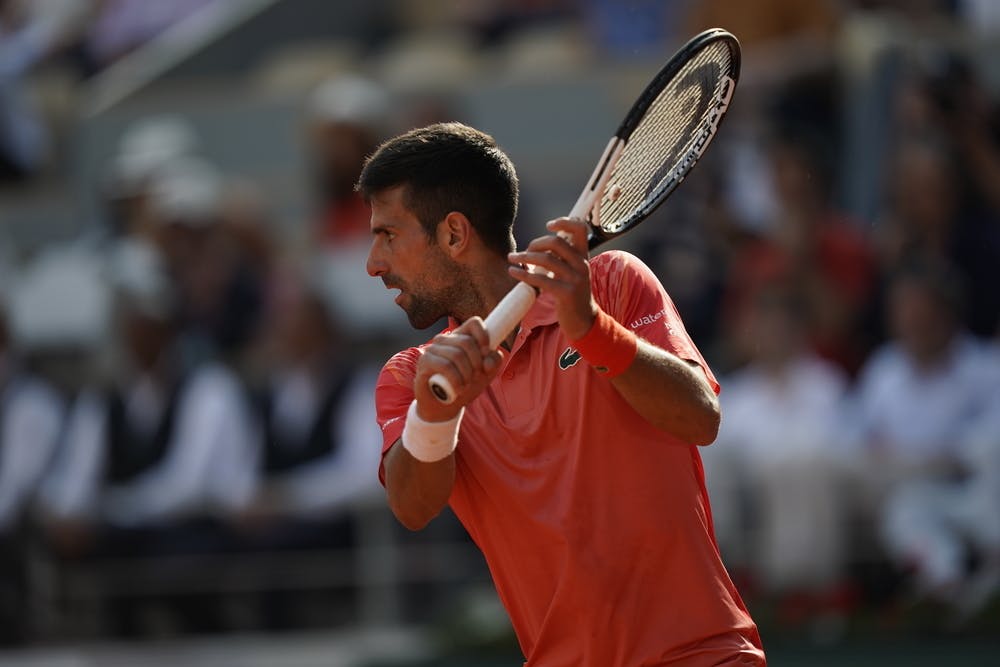Djokovic has beaten Ruud four times out of four but the Norwegian has been improving with every match and is in the final for the second year in a row, chasing his first Slam title.
Here’s a tactical breakdown of Sunday’s final...
How well can Ruud return the Djokovic serve?
In his time with coach Goran Ivanisevic, Djokovic has become one of the best servers in the game and the stats back that up.
In his six matches this tournament, the Serb has won, on average, 73 per cent of points on first serve and 52 per cent on second. In two of those matches, he’s won more than 80 per cent on first serve and 60 per cent or more on second. That means that when it comes to his opponent’s serve, Djokovic can relax, knowing he’s taking care of his own service games.
The variety, as demonstrated in the semi-final against Carlos Alcaraz, also keeps his opponent guessing. Ruud has been most effective returning the second serve, winning 56 per cent of points on average but only 36 per cent on first serves.
If Djokovic continues to get more than 60 per cent of first serves in, Ruud will need to up that percentage to make a dent.
 ROLAND-GARROS
18 May - 7 June 2026
ROLAND-GARROS
18 May - 7 June 2026





